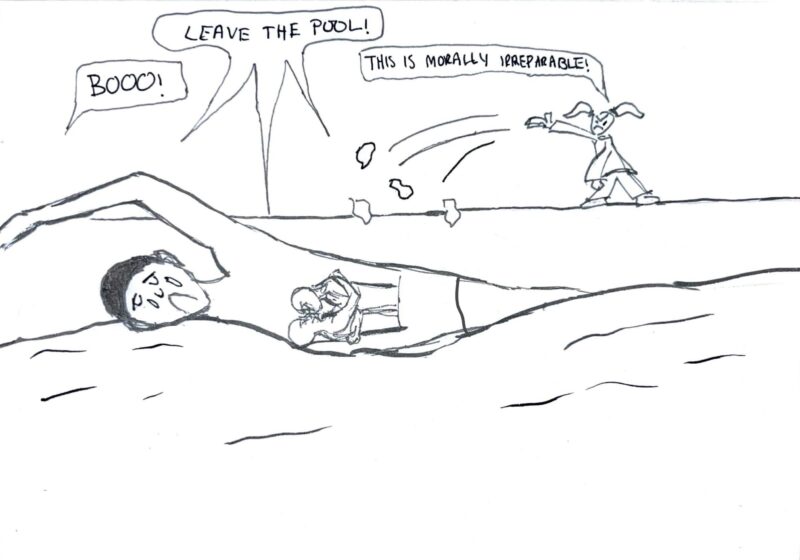We’ve hit that point in the year: Your neck probably aches from hours spent hunched over the computer; Information that you’ve drilled into your mind for different classes is melting into one big puddle of words, statistics, and numbers; You’ve drained your declining balance at Starbucks by purchasing every caffeinated drink known to mankind. When the amount of work begins to ramp up in late September and early October, burnout strikes the student body without a crumb of mercy.
We all love to throw around the term burnout, but what exactly does it mean?What are the symptoms? And most importantly, how can you move beyond it?
Herbert J. Freudenberger, an influential late-20th-century psychologist, defined burnout as a mental state where someone has “become exhausted by making excessive demands on [their] energy, strength, or resources.” It may make you feel like your schoolwork is frustrating, draining, or boring, and you may notice a lowered level of efficacy in doing what you need to do. Procrastination may become an issue for you.
Because burnout is really an extended period of stress at its core, it causes your stress hormones, such as cortisol, adrenaline, norepinephrine, and epinephrine, to be elevated, which can cause physical symptoms. Your sleep cycle may be affected, which in turn can cause fatigue, insomnia, or nightmares. You may notice changes in your eating habits like eating less than you usually would or craving comfort foods often. Headaches and stomach aches may also accompany burnout.
If any of these feelings sound familiar to you right now, you may be on the road to burnout, or even burnt to a crisp already! Here are some realistic tips on how to work through burnout (from someone who’s been there.)
Let’s begin with some ideas to keep in mind. First of all, what you’re feeling is valid, no matter how hard you work, how productive you are, or how high your grades are. Period. Even if it doesn’t look like it on the surface, everyone struggles from time to time! Don’t be afraid to open up to a close friend, or even a trusted adult in the community. If you do, you’ll probably find out that they’ve felt something similar to what you’re struggling with, or maybe they’re even burnt out right now! If talking to someone feels too challenging, consider writing about your struggles in a journal.
Now, here are some tips for adjusting your study habits. Try to prioritize the most important assignments so that you can give the most energy to them. You may have to let some less urgent readings, questions, or worksheets slide, but your mental health is more important! If you have to skip a reading, look up a summary or ask a classmate about it just so you’re covered if you get called on. If you’re studying for an exam, focus on the topics that are most confusing to you or that you know the least, and spend less time on the stuff you’re confident about.
Whatever you do, try your best to attend lectures! Skipping them will lead to a huge pileup of missed information later on, and you’ll get super stressed out just thinking about it. If attending feels absolutely unbearable, consider giving yourself a quick mental break every few minutes by reading something else that interests you on your computer, playing a game, or online shopping.
Try to adjust your expectations. Instead of beating yourself up for what you couldn’t do, congratulate yourself on what you were able to finish or work on. Be sure to reward yourself with a little sweet treat, your favorite TV show, or just doing anything that brings you joy!
Also be sure to take care of your body by prioritizing sleep, eating nutritious foods, staying hydrated, showering, changing clothes regularly, and squeezing in physical activity anywhere you can in your day!
Finally, if you end up getting a grade that you’re not so proud of, try your best to remember that it’s not the end of the world. You have future semesters to show your academic prowess. Also, you are the only one that has access to your academic record right now! You never have to talk to friends or classmates about what you got, and if you feel forced to, honestly, you can always lie. Your secret’s safe with me.
If you are struggling with your mental health, there are professionals available to help you! Please go to https://www.rochester.edu/uhs/ucc/appointments/ to find information for making an appointment at the University Counseling Center, or go to https://www.rochester.edu/uhs/ucc/crisis-services/ for crisis-related resources.




